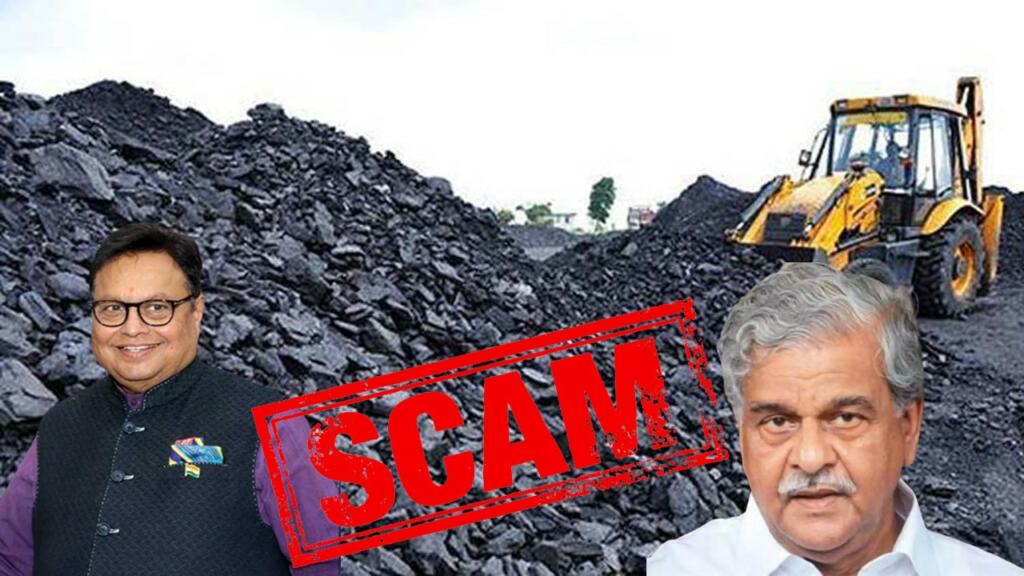The recent conviction of Vijay J Darda in the Coal Block Allocation Scam has raised eyebrows amongst various sections. Darda, well known as the chief of Lokmat Media Group, has been sentenced to four years in prison for his involvement in the scandal. But he’s not alone in this. His son, Devendra Darda, and Manoj Kumar Jayaswal, director of JLD Yavatmal Energy Private Limited, have also been found guilty.
The repercussions of this case go beyond individuals. JLD Yavatmal Energy Private Limited, a key player in the coal block allocation scam, has been slapped with a hefty fine of Rs. 50 lakhs by the court. The legal proceedings come under the case titled “CBI vs JLD Yavatmal Energy Ltd & Others.”
Interestingly, Manoj Kumar Jayaswal’s connection with Shri Prakash Jaiswal, former Minister of Coal for the Government of India from 2011 to 2014, adds another layer to the story.
Manoj Kumar Jayaswal and the Yavatmal Connection:
So, who is Manoj Kumar Jayaswal? Manoj Kumar Jayaswal held the position of Director within JLD Yavatmal Energy Private Limited, a non-governmental entity embroiled in allegations of financial misappropriation with context to the Coalgate Scam. The Coalgate Scam revolves around improper allocation of coal blocks, which led to a staggering loss of 10.6 lakh crores to the national exchequer, though the final CAG report revealed it to be 1.86 lakh crores.
According to an investigation by India Today, Jayaswal and his family managed to secure eight out of the 57 coal blocks that were allocated between 2005 and 2009.
The Jayaswals used five different companies to get these coal blocks. These companies are Abhijeet Infrastructure Ltd, JAS Infrastructure Capital Pvt Ltd, Jayaswal Neco Ltd, Corporate Ispat and Alloys Ltd, and JLD Yavatmal Energy Pvt Ltd. This tactic seems to have served multiple purposes, making their involvement less obvious.
How are Manoj Kumar Jayaswal and Shri Prakash Jaiswal related?
Shri Prakash Jaiswal, once the Minister of State for Home Affairs, was in charge of the Ministry of Coal when the Coalgate Scam came to light. This places him at the centre of the controversy due to his role in a crucial period of coal block allocations.
The allocations took place between 2005 and 2009, a time when Prime Minister Manmohan Singh held the coal portfolio. Shri Prakash Jaiswal has used this very fact to maintain his ‘innocence’, claiming that the decisions were made under the Prime Minister’s leadership.
These coal blocks were granted in states like Jharkhand and Chhattisgarh. Coincidentally, in 2006, JLD Yavatmal Energy Ltd was formed. Manoj Jayaswal, a promoter of the aforementioned companies, is related to ex-coal minister Shri Prakash Jaiswal through marriage. Shri Prakash Jaiswal’s daughter married into a notable business family in Kolkata, headed by Ganesh Prasad. Manoj is the son-in-law of Prasad’s brother.
These familial links, along with the timing and location of the coal allocations, invite a closer look into how relationships and connections might have influenced significant decisions regarding the distribution of valuable national resources.
Coal Block Allocation Scam: The Vijay Darda connection
The investigations also brought to light a series of connections involving Manoj Kumar Jayaswal, Shri Prakash Jaiswal, and Vijay Darda. These connections unveil a network of affiliations and interactions that shed light on their roles in the controversy.
Also read: The Vijay Darda Cover-Up: How media shielded a Coalgate scam mastermind
As mentioned before, Manoj Kumar Jayaswal was a director at JLD Yavatmal Energy Private Limited. His role becomes significant when we consider its place within the larger framework of the unfolding scandal.
As per reports from sources like Aaj Tak, Vijay Darda, along with his son Devendra and brother Rajendra, emerges as a primary beneficiary within this intricate network.
Let us look at the distribution of equity within the cluster of companies orchestrated by the Jayaswal family. The Darda family holds a considerable 50% stake in JLD Yavatmal Energy, a company overseen by Manoj Kumar Jayaswal. This allocation of ownership establishes a tangible link between the Dardas and the corporate endeavours led by Jayaswal.
Interestingly, Vijay Darda’s decision to remain silent about these connections’ raises questions about the underlying motivations, strategic considerations, and complexities that might underlie his silence.
Why no media coverage till date?
The lack of media coverage on the connection between Manoj Kumar Jayaswal, Shri Prakash Jaiswal, and Vijay Darda in the Coal Block Allocation Scam raises serious questions about the state of media in India. Vijay Darda’s influence, owing to his role as a Member of Parliament as well as a leading media Moghul, seems to be the reason for this.
Despite being convicted in the Coal Block Allocation Scam, there’s almost negligible coverage of Vijay Darda, or his accomplices in the mainstream media. His ability to shape narratives and his connections within powerful circles due to his media and political connections, must have influenced the narrative around the scam as well as the court trial to a great extent. If these connections were exposed, they could reveal more about power dynamics and personal interests that often affect such high-profile cases.
The ongoing Coalgate Scam investigation urges us to delve deeper, looking beyond the surface to uncover the currents that shape power dynamics, influence, and decision-making within our society. As the investigation progresses, these connections could reveal more about the connections between corporate governance and political influence. Further investigation into these connections could lead to uncovering more information.
The lack of media focus on the connection between Shri Prakash Jaiswal, the Coalgate episode, driven by the influence of Vijay Darda and his connections, underscores the need for more comprehensive investigation.
